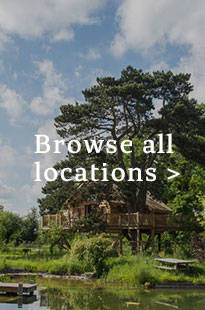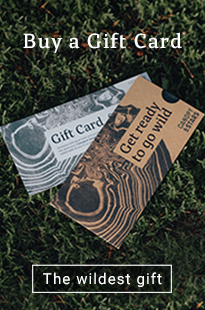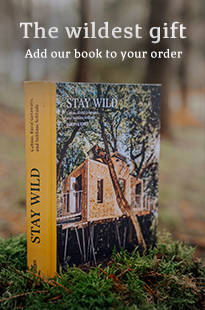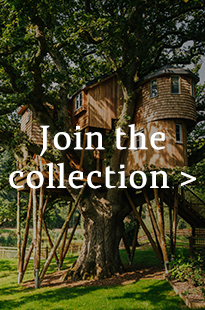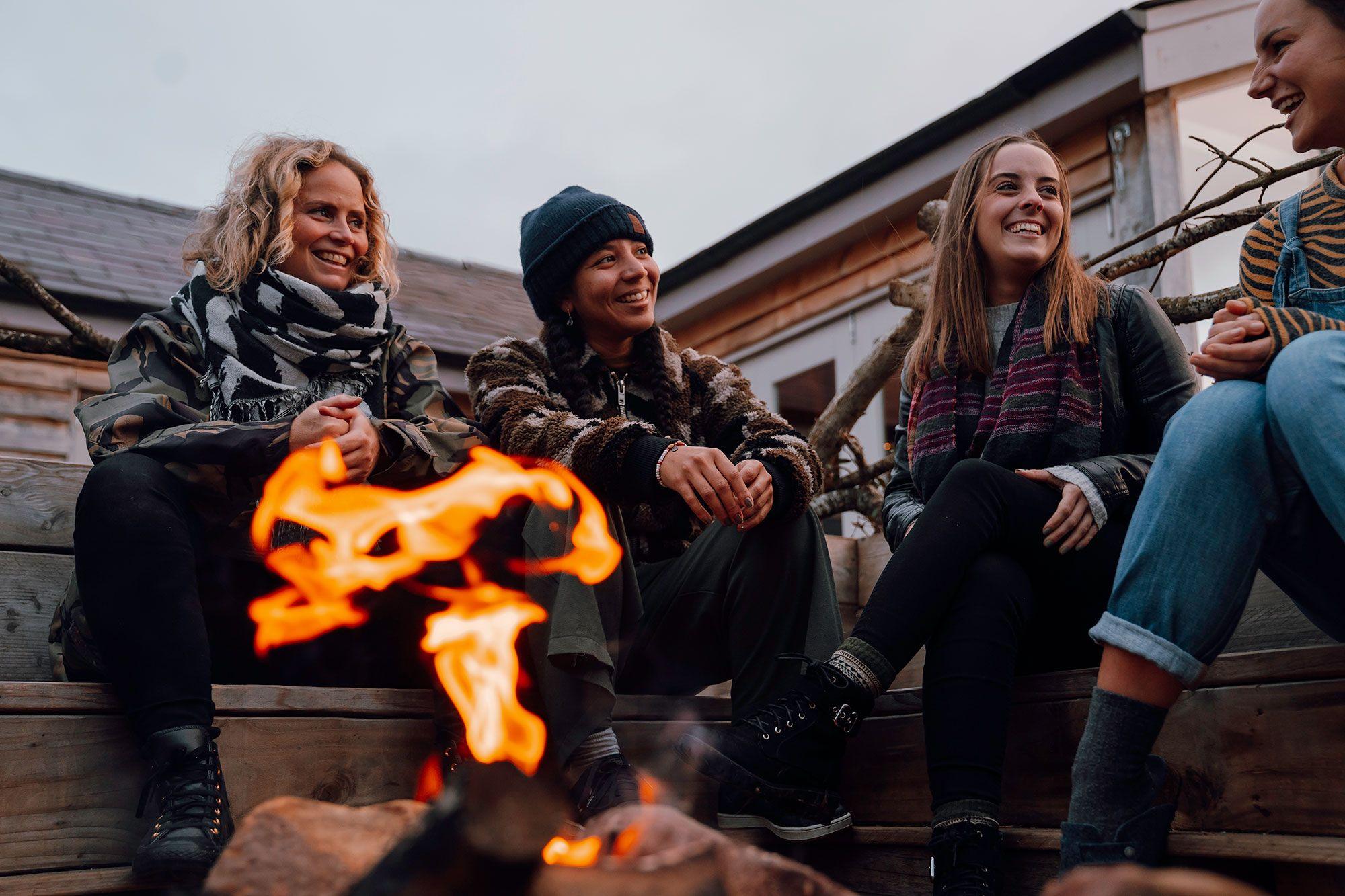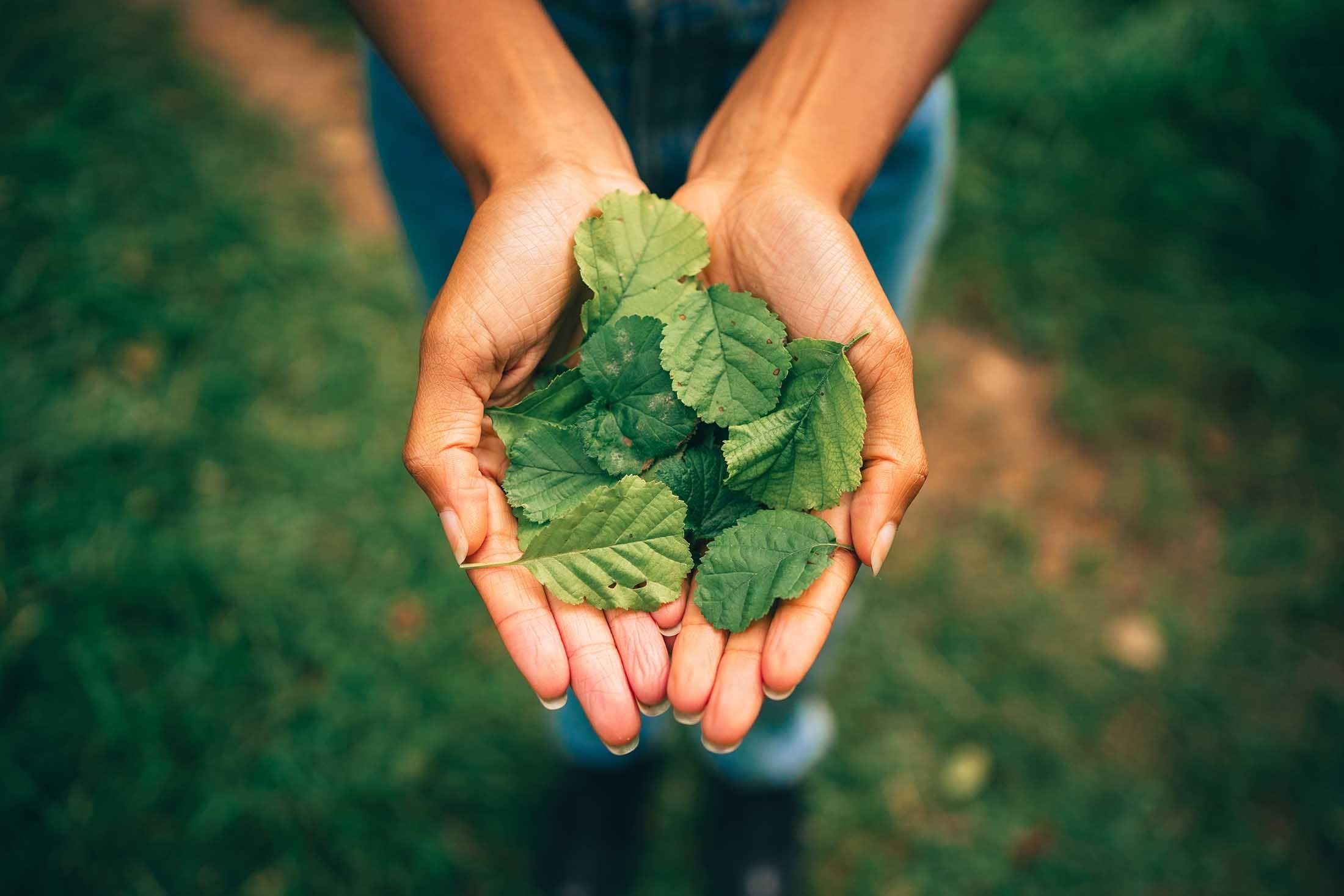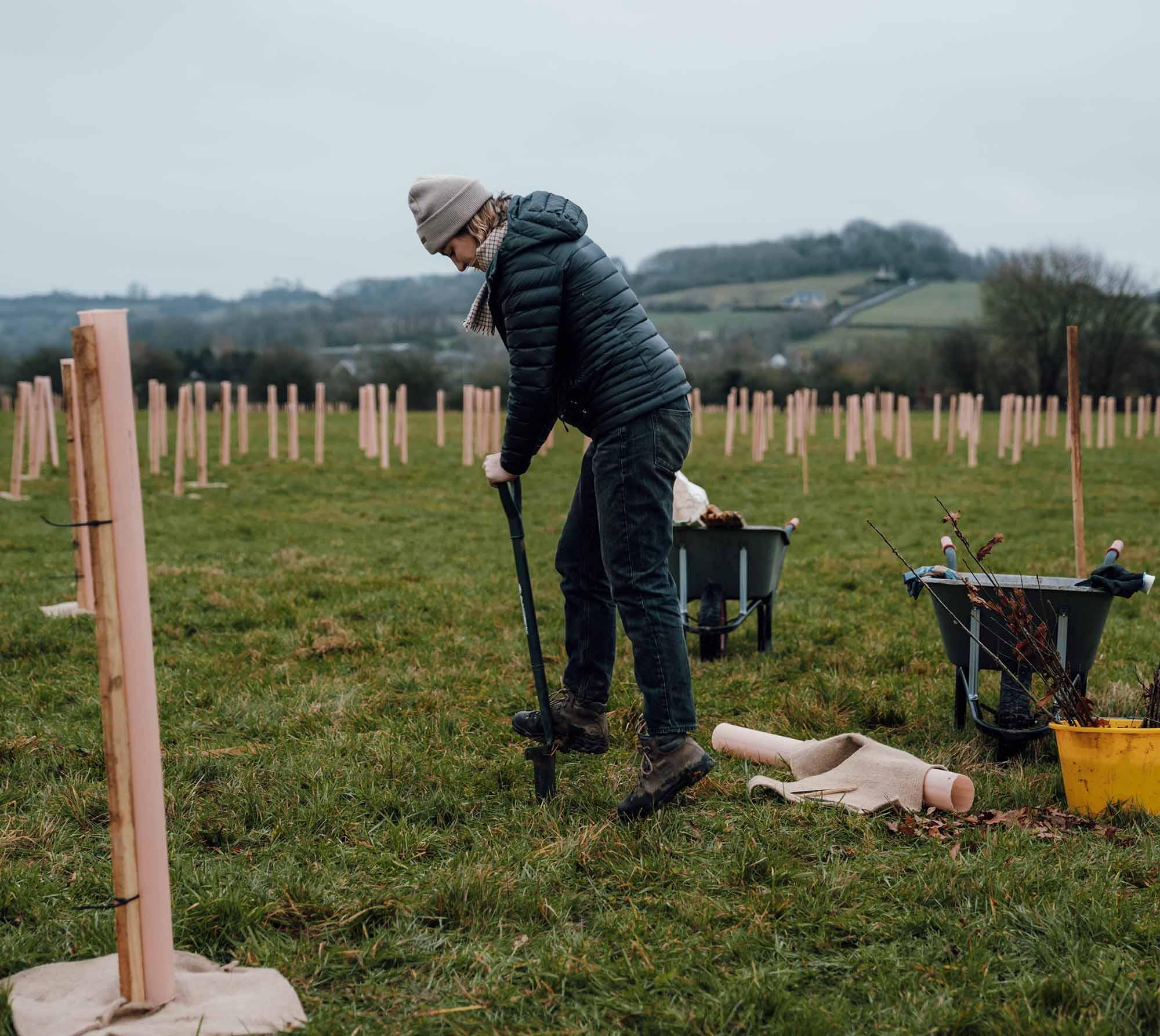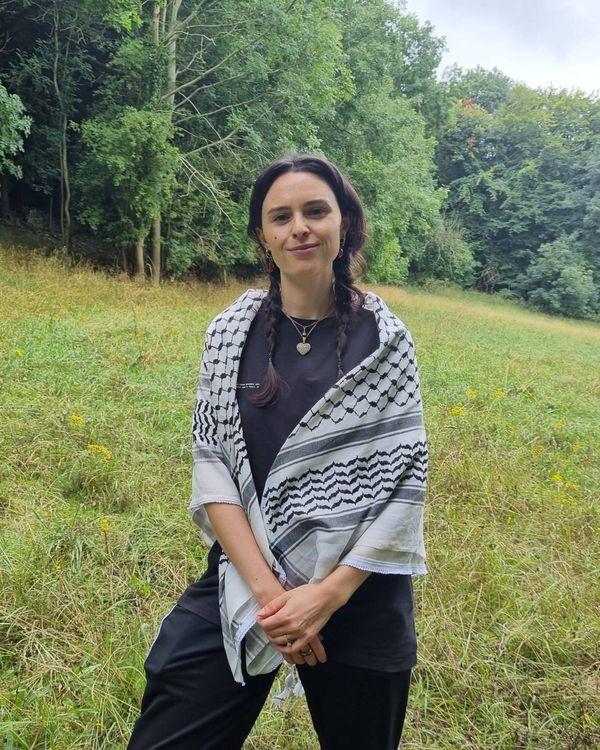
A life More Wild – Series 4, Episode 10
Venetia La Manna
Venetia La Manna loves clothes, how they make her feel, the art of them, the sense of identity and the power they can provide. But she also knows, more than most, about the evils of the fashion industry, she's made it her life and work to bring issues of
Venetia La Manna loves clothes, how they make her feel, the art of them, the sense of identity and the power they can provide. But she also knows, more than most, about the evils of the fashion industry, she's made it her life and work to bring issues of fair pay, overproduction and environmental harm into the spotlight.
Apart from fashion, one of the things that I'm really interested in is greenwashing. I think it is so unjust that brands are able to, you know, tell us that in order to do good for the planet, we have to buy something. That is where I feel quite passionately about greenwashing. You don't have to buy to do something good for the planet.
I'm Chris from Canopy & Stars, and this is A Life More Wild. Join her now as she takes a walk near her Gloucestershire home. Talks about the power of collective action. The need to stay positive, and whether she knows her way around The Heavens, so to speak.
I'm Venetia, and we're currently in The Heavens, which isn't where you think it is. It's in Stroud in Gloucestershire. We've just started the walk, and we're walking under a kind of wooded pathway, and sort of immediately, actually, on the left, there's a really beautiful view of the Stroud valleys and Stroud town as well. The sun seems to be poking its head out, which is a very big blessing on what would have appeared to have been quite a gray September day. And also, if you look out into the distance, you can just see the trees are starting to turn and go sort of a deep, deep maroon colour from that earthy, earthy evergreen green.
The walk actually begins under a canopy of trees, which is very beautiful and very comforting. I love looking up and just seeing leaves, on leaves, on leaves, on leaves above me and more and more trees. There's nothing quite like a canopy of trees is there. I really wish all my meetings and work events could take place in the trees, in woods, in the countryside. That would be ideal. And I think they'd feel a lot less stressful, actually.
We've come to a kissing gate. And a couple of years ago, my husband and I were on a walk, and we saw a couple stop and kiss each other as they went through the gate. And so now, every time we see a kissing gate, no matter who's around, we will stop and give each other a kiss, which is very cheesy, but he's American. So, what else would you expect?
I lived in London for about ten years, and I was in London for the majority of the pandemic, and found myself, I think, like everyone else who was living in a small, one bedroom flat without a garden, absolutely craving green space. And you know, our access to green space at that time was quite limited due to the pandemic, and so we thought, maybe now would be a good time to give the countryside a go. So, we moved out to the countryside about three years ago, and it took some adjusting. It's so different to living in a city, especially when, you know, most of my friends were still in the city, and it was a big, big change, but one that has been brilliant, and I'm so happy we've done it. I think I feel overall much calmer living in the countryside. And I just love it, you know, I wish, I truly wish everyone could have access to green space, clean air. I think it is a basic, fundamental human right, and it's a huge privilege to have been able to make, make this move. And yeah, I'm so, so happy in the countryside, and now, when I do go to London, it's all very exciting, and I really, really appreciate it.
The reason why I wanted to bring you to The Heavens, in Stroud today, is because not only is it a beautiful walk with meadows and trees and biodiversity and nature, and birds and squirrels, and lots of dogs, it's also a really special place to the community. So ahead of us, there are a group of people playing on the swings and on a hammock. There's another person talking to them.
There are three dogs running around. So, this is very much an area where people come to walk and also to play and be in community, and pretty soon we will see a waterfall as well. So, there's lots going on here. And the reason why I especially wanted to come here today, is because earlier this year, this this piece of land was going to be sold, and the community felt so upset by that and so frustrated that they came together, and they got organized, and they resisted and they fundraised, and it looks like the land is now going to be owned by the community, which is just incredible. It's exactly as it should be. And this is just one example of people from the Stroud community coming together to take back what is rightfully ours. Similarly, there's an amazing restaurant/food bank/furniture bank/pay-what-you-like-eatery nearby called The Long Table, and at the sort of similar time to when this was happening, their building was going to be sold, which would have and that place is a lifeline to so many people. And again, the community came together, they got organized, they resisted, and that building is remaining with The Long Table. So, Stroud is really a place where people come together and build community and build collective action.
There are lots of brambles and blackberries around, and the blackberries came out really early this year. I think they were sort of out in late July, early August, so they're sort of on their way out now, but some of them still look pretty juicy, so might have to have a little munch. You might be able to hear the waterfall next to us now, and the water is sort of gently flowing down to a river. It sounds so nice. There's lots of little creatures flying around as well, enjoying, enjoying the water as well. I can also see little creatures in the water when I look very closely. So, it's thriving around here.
Honestly, I must admit, I absolutely adore the work that I do, and I feel so lucky to enjoy it. It's not something I take for granted. I think there are so many of us who feel a bit lost in terms of what we're doing, and I've definitely felt like that before. You know, ‘What am I doing? What's the purpose, what's the meaning.’ And I love what I do, and it genuinely does get me up in the morning. I feel, I feel really excited to to get going when I wake up. And I feel like I've got so much to do every day. So truly, I'd love to say meditation gets me up in the morning, but it is actually the thought of, ‘Right? What am I doing today? What can I get done today?’ And I do feel really energized by it as well. So, I feel very, very lucky to be in that position.
Specifically with fashion, one of the reasons why I was so impassioned to talk about that topic and find out as much as I could, and continue to learn about it every day, is because clothes are really powerful. We use them to express ourselves. They're a form of art and creativity, and historically, they're a form of resistance as well, and they connect us to the people that made them. You know, garment makers, and their stories and their craft are woven into the threads of our clothes. And I think the reason why I choose to champion fashion in terms of worker, worker rights and oversupply, and why this is a topic that means a lot to me, is because of all of those things. I love clothes. I love how they can make me feel. I love how fabrics can comfort me after a difficult day or when I'm feeling low. For me, nothing beats putting on a clean, baggy cotton t shirt when I want to feel comfortable and comforted, and when I first learned about big fashion, and how it is responsible for a lot of damage and destruction and exploitation, there weren't that many people, in my sort of circles, who were talking about it. And I'm a big believer in information, and knowledge is power. And so, when it comes to talking about certain topics that I do online and offline as well, it's because I think the more we know, the more possibility there is for us to create change and be part of change as well.
You see a rabbit. There's a rabbit in the distance. They're so sweet, tiny, little brown, brown rabbits actually, very camouflaged by the grass, but when we move forward, no doubt it's the little white tail will reveal itself. They're so sweet. I love them. It's it just popped into the bushes. It's always little white tails that you can see when they move so sweet.
Fashion is one of the most unregulated industries, and it's also one of the industries with the biggest impact. Some studies say that it's more. Its kind of impact is bigger than aviation and shipping combined, and it's also a trillion-dollar industry. It employs millions, and millions, and millions of people, so I kind of feel a bit frustrated when it's left out of certain environmental conversations, because it genuinely has, its power is just vast, and it's also deeply unregulated, and there's also a severe lack of data. So as an example, currently, some studies suggest that big fashion produces 80 billion items every year. Others suggest it's as much as 150 billion. That's a huge discrepancy, and we can't regulate the industry or change the industry, without that data, and without those numbers, which is why I feel really excited about a campaign that's being run by The All Foundation, who are based in Accra, in Ghana, which is where much of the UK's and Global North's clothing waste ends up. They're calling for industry wide accountability and demanding that all fashion brands disclose their annual production numbers. And we had lots of success last year when we launched the campaign, some brilliant brands like Finisterre and Lucy & Yak endorsed, which was awesome. And this year, we are after big brands, and once we have that data, then we can look to create data driven policy, which would potentially cap the number of clothes that are produced every year, but also add a tax on each garment when we buy a garment from a shop or online, there would be a tax embedded in that, that could then help communities in the Global South who are doing everything they can to sort out a problem that, frankly, isn't theirs. So that's a campaign I feel really, really excited about, and it's one of the ones that wakes me up in the morning and gets me out of bed.
We're now walking down a hill, and in front of us we can just see trees upon trees upon trees, apart from poking out of the trees at the very top as a church spire.
In 2020 I had been a quote, unquote, ‘ethical consumer’ for quite a few years, buying second hand, reducing what I was buying overall. And the pandemic started, and garment workers around the world were left without pay for work that they had already completed. And I kind of had a light bulb moment of ‘Wait, I've been ethically consuming and talking about it online and starting to call out, you know, fast fashion brands. I don't think I've been doing enough, like, what more can I do? And how can I learn more about this issue?’ So, I co-founded a campaign called ‘Remember Who Made Them’, and we spoke to garment workers from all around the world and created a podcast to find out directly from them about what they wanted and their demands. And at the same time, there was a campaign running called ‘Pay Up’, which successfully unlocked, I think it could have been billions of unpaid wages for millions, if not billions, of unpaid wages for garment makers, and for me, that really showed the power of collective action. And so, since then, I've been trying to do as much campaigning and organizing as I possibly can, because I truly believe that change comes from grassroots organizing. And of course, there are brilliant people doing wonderful things, by being in certain rooms and being inside big fashion corporations, and that kind of thing. And that is definitely of huge value. And I'm very grateful to all of those people, and at the same time, we also need as many citizens as possible realizing that they are more than consumers. We're so much more than what we buy, and our power comes from when we come together, and we act in solidarity with the people who are most marginalized and most impacted by corporate exploitation and racial capitalism.
And now we've come to a beautiful little stream which is obviously connected to the, to the waterfall that we were just at. And across it, there are sort of big stone boulders that we can walk over. I just love. I find, I find this sound specifically so calming, and there are little birds flying over the stream as well that we can see as well, which is lovely.
In terms of how to stay positive. I think we really need to undo the individualism that society and capitalism has taught us. We've been pretty indoctrinated recently to think of our power is, you know, our individual power, and the way we can climb ladders and only rely on ourselves. And there's a rhetoric about, you know, we don't owe anyone anything, and we know, and we owe each other everything. And I think our power comes from community, comes from feeling like we're part of a collective. So, when it comes to feeling positive, to me, and there have been points over the summer, this year, that I have felt so low and felt like, oh my gosh, I'm not doing enough, just feeling really quite overwhelmed by what's happened with
the racist riots and fascism in the UK, and the only thing that made me better in that moment was going to the Bristol counter protest and being in community and seeing all of these people who were saying, not me, not in my name, not here, not now, not ever. And so that, to me, is where positivity comes from. It comes from looking at people local to us, who are doing what they can to create change and to come together and to realize that we are not individuals. We are part of a, and to realize that we're part of something bigger. And that is where change comes from, and that's where positivity comes from, and not in like a toxic positivity way, because the world is a lot, and there are some really horrendous things happening at the moment that we all, shouldn't be turning a cheek to. I think it's really important to stay engaged, but I think it's also very important for us not to be nihilistic. And so, anytime I have someone, perhaps in my comment section, or come up to me on the street or in an event, says, ‘Oh, but what's the point? Like? There's nothing we can do’, I immediately go, ‘No, there's everything we can do. We can do so much. We have so much power.’ So I think it's really, really important to kind of not sit with that nihilism and to realize that we have the power to create change. And there are so many people doing incredible things to build a better world.
If you're currently standing naked next to a pile of burning clothes, as you re-evaluate your shopping choices, we'll leave you to it, but there are more moderate steps we can all take as well. Follow Venetia's various channels, be part of the conversation around fast fashion, and try to think a little more about where our clothes come from.
Next time, we'll be in Kew Gardens with ethnobotanist, James Wong. He'll be telling us how plants can and should be central to all our lives, as well as how his expert knowledge has ruined films for him, forever.
Keep track of all Venetia’s work on her Instagram and follow us on ours to see behind the scenes footage from recordings and a few extra questions we asked each guest.
A Life More Wild is an 18Sixty production, brought to you by Canopy & Stars. Production by Clarissa Maycock. Our theme music is by Billie Marten.

